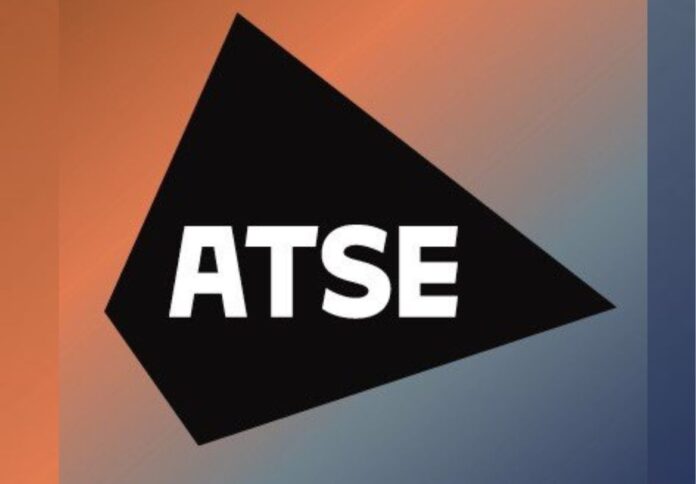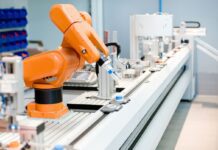
Media Release by ATSE
Some of Australia’s leading engineers and inventors have been recognised for building a better Australia through technological innovation.
Solving sustainability problems, protecting healthcare providers from COVID-19, and using technology to train next-gen pilots are among the achievements of award-winning STEM innovators recognised at the Australian Academy of Technological Sciences and Engineering’s (ATSE’s) annual Awards, held tonight in Sydney.
Scientia Professor Veena Sahajwalla FTSE FAA has won the Clunies Ross Innovation Award for her globally recognised waste transformation technologies. Professor Sahajwalla invented a patented Polymer Injection Technology known as Green SteelTM where waste rubber can be used instead of coke and coal, for a better, more environmentally sustainable steel-making process. Professor Sahajwalla and her team are also commercialising their breakthrough MICROfactorieTM Technologies that transform diverse wastes – including textiles, glass and plastics – into products such as high-grade filaments for 3D printing and Green Ceramics for the built environment.
Clunies Ross Knowledge Commercialisation Award winners Professor Jason Monty and Dr Forbes McGain could see that intensive care workers were at great risk of COVID-19 exposure as early as March 2020, weeks, if not months, before many Australians began to feel the impact of the pandemic. Dr Forbes had the idea that a pram-like hood placed over the head and torso of a patient would contain the virus particles and limit its spread. The Medihood is the result of this unique collaboration between Professor Monty and Dr Forbes – combining their fluid dynamics expertise and intensive care ward experience. Infectious air is contained and filtered through the Medihood, providing a safe working environment for healthcare workers and protecting patients. The multi-award-winning Medihood has created safer conditions in more than 145 hospitals across Australia and has been adopted internationally.
Professor Saeid Nahavandi FTSE has won the Clunies Ross Entrepreneur of the Year Award for his exceptional work on the universal motion simulator – a two-story world-first haptically-enabled robot motion platform that functions as a vehicle and flight simulator. Allowing pilots, drivers, and other users to experience the full range of motion as part of virtual reality training, this technology has medical, engineering, military, and education applications.
Airport safety requires efficient approval for flights of all shapes and sizes, including an increasing amount of drone traffic. Batterham Medal for Engineering Excellence winner Dr Aaron McFadyen has developed air traffic management technology that dropped approval times for drone flights from weeks to minutes, enabling the safe expansion of drone flight numbers over urban areas. Dr McFadyen worked closely with the Civil Aviation Safety Authority and Air Services to create a system for automated approval for drone flights in the highly controlled airspace around airports.
Solar panels are an essential element of the transition to renewable energy and a net zero energy economy. Ezio Rizzardo Polymer Scholarship winner Jefferson Lam is a solar engineer taking cues from nature and the original solar energy harvesting experts – plants – to develop lightweight panels with better performance. Lam’s polymer science and engineering mimics the structures of plants to create solar panels that can be deployed across Australia and the world at ultra-low cost.
One in five adults suffers from dry eye disease – a common condition that is difficult to diagnose. David and Valerie Solomon Award winner Associate Professor Laura Downie, an international leader in vision care, has co-invented a device that could revolutionise dry eye diagnosis. The Acoustically-Driven Microfluidic Extensional Rheometry (ADMiER) device enables subtype specific diagnosis from a patient’s tear droplet, which means more well-informed treatment and better outcomes.
Australia’s multi-billion-dollar seafood industry is threatened by seafood fraud and illegal fishing. To combat this, ICM Agrifood Award winner Dr Zoë Doubleday has combined her expertise in marine ecology and geochemistry to develop a method to trace the origins of seafood. This technology will increase consumer confidence in high quality seafood products from sustainable sources.
Every year Australia manufactures over 220,000 tonnes of milk powder to support the production of chocolate, ice cream and infant milk. ICM Agrifood Award winner and chemical engineer Dr George Chen found a 20 per cent energy saving by using the salty whey from cheese-making. Reducing the waste and energy use from milk powder manufacturing will increase sustainability in the dairy industry.
Australian Academy of Technological Sciences and Engineering (ATSE) President Hugh Bradlow said the award winners demonstrate the cutting-edge creativity of Australian innovators.
“Nominated by their peers, ATSE Award winners are tech and innovation game-changers at all career levels and show the breadth of Australian talent in the fields of engineering, technology and applied science,” Professor Bradlow said.
“From innovating in the skies, where the best training is given to the next generation of our pilots, and drone flight monitoring is streamlined; down under the sea, where we can trace the origins of our food to ensure sustainability and best practice approaches to fishing.
“These award winners demonstrate the potential of brilliant Australian R&D,” said Professor Bradlow.
“As we move towards a net zero emissions future, their inventions are paving the way for increased solar panel efficiency and affordability to meet demand; and helping end waste by bringing new life to materials, and new approaches to sustainable resource processing and production.”
Professor Hugh Bradlow also presented the inaugural ATSE President’s Medal to Dr Joanne Daly PSM FTSE in recognition of her extraordinary commitment and exceptional contribution to the Academy. Dr Daly has served as Chair of ATSE’s Assembly and Chair of the ACT Division. As a member of the Agriculture and Food Forum, she has contributed to major policy reports on climate change and agricultural futures. Dr Daly is a champion for change in ATSE’s governance and membership strategies, and her contributions have shaped ATSE for the better


















